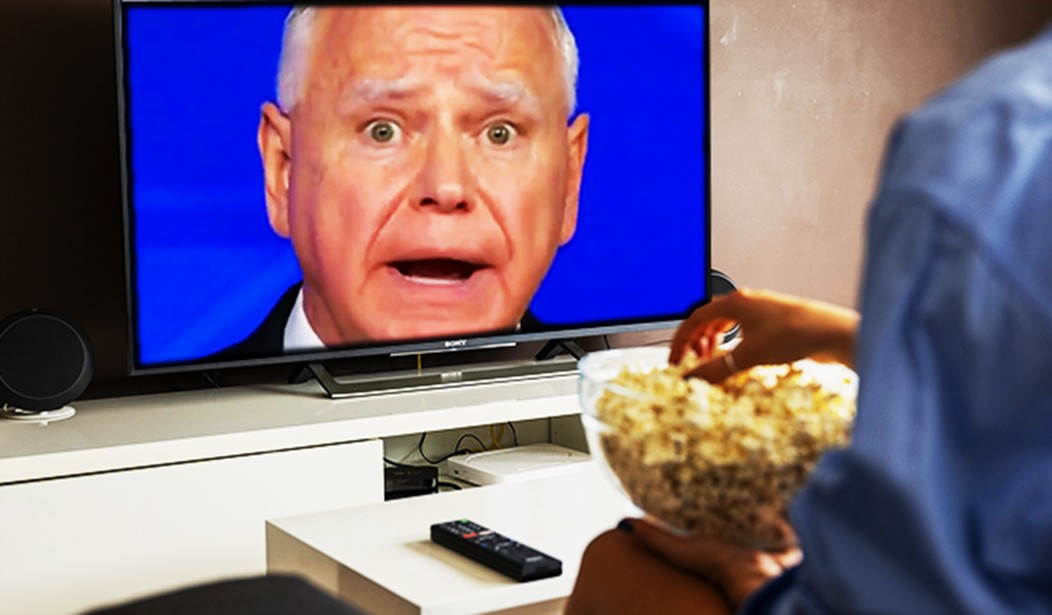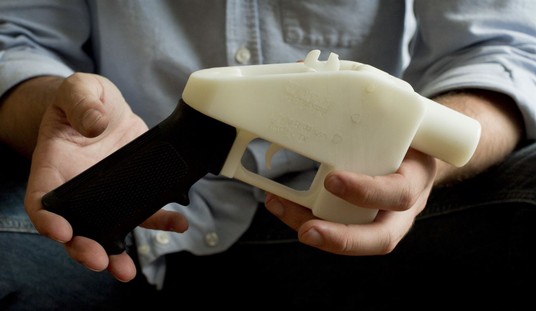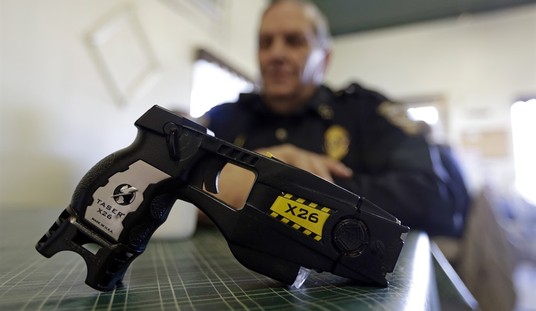After unleashing what very welll may be the most bizarre statement ever uttered during a vice presidential debate, Tim Walz is now trying to clarify what he meant when he claimed he was "friends with school shooters."
On Wednesday, Walz claimed he was "talking about meeting people where there are school shooters," adding that he's become friends with gun control activist David Hogg in the years after the shootings at Marjory Stoneman Douglas High School in Parkland, Florida.
"These folks know me. I'm super passionate about this. The question came up about school shooting, [and] we're talking about everything except school shootings," Walz said, according to a clip of his exchange with reporters posted to X, formerly Twitter, by NBC News' Julie Tsirkin.
"I sat as a member of Congress with the Sandy Hook parents, and it was a profound movement," he continued, adding that gun control activist David Hogg—a student survivor of the Marjory Stoneman Douglas High School shooting in Parkland, Florida, in February 2018—"is a good friend of mine."
"You have seen me do this. I was talking about meeting people where there are school shooters, and I need to be more specific on that, but I am...I am passionate about this," Walz said.
Walz brought up his meeting with parents of some of the young victims on the Sandy Hook shootings during the debate on Tuesday night as well, saying it was that meeting that made him change his mind on a ban on so-called assault weapons. But as the New York Times reported in August, Walz declined to co-sponsor a House bill banning "assault weapons" in 2013, even though he had told a reporter shortly after the Sandy Hook shootings that he was rethinking his position on a ban.
Mr. Walz said at the time that he was open to considering bans on certain weapons and magazines and strengthening background checks. “If we as a society, because of the nature of where we’re at, we have to take a look at that, I certainly want that to be at the table,” he said.
But there is little evidence that he took meaningful steps to change his position. When a House bill to ban assault weapons was introduced a month after Sandy Hook, he did not join more than 80 Democrats as a cosponsor. Nor did he join them on proposals to expand background checks. He never had a chance to vote on the bills because they died in committee.
And Mr. Walz continued to receive the N.R.A.’s endorsement. In 2014, he supported an amendment aimed at hindering the District of Columbia’s ability to enforce stringent local gun laws. He cosponsored N.R.A.-backed legislation in 2015 expanding access for hunters and sports shooters on federal land. Later, he voted for a bill allowing veterans deemed mentally incompetent to purchase firearms unless a judge ruled that they posed a danger.
It wasn't until 2017, when Walz was running for the Democratic gubernatorial nomination in Minnesota (and running from his past opposition to gun control measures), that he shifted his positions.
When he first began campaigning for governor, gun control was not the front-and-center issue that it would become. A news story about his intention to run in March 2017 said “he expects to talk on the campaign trail about the importance of funding public schools and investing in critical transportation infrastructure.”
That changed in October, when a man using a bump stock to simulate automatic fire killed 60 people at a Las Vegas music festival. Mr. Walz’s opponents pounced. After another candidate for governor, State Representative Erin Murphy, challenged Mr. Walz to give back the $18,000 he had gotten from the N.R.A., he said he would donate it to a veterans charity. He also cosponsored legislation to ban bump stocks, called for a select committee on gun violence prevention and urged other reforms.
“Now it’s time to move on and actually make some progress on this issue,” he wrote on Facebook. “Let me be clear: I’ve got the credibility to bring gun owners to the table in St. Paul to get this done.”
As the campaign entered 2018, he continued facing criticism. Rebecca Otto, the state auditor, running against him, said at the time that “he had many opportunities to change” after Sandy Hook, “and the only thing that’s changed is that he’s running for governor.”
After the Parkland school shooting left 17 dead, Mr. Walz joined other Democrats in cosponsoring a bill to ban assault weapons. In explaining his decision, he said he was influenced in part by his daughter, Hope, who implored him to make a difference.
Walz has offered different accounts of what and who convinced him to flip his position on banning modern sporting rifles, but based on his record it sure seems that his decision to run for statewide office as a Democrat played a major role in his shift.
As Mr. Walz sought to rebut charges that he had only recently altered his views out of political expediency, he pointed to procedural votes he had taken in Congress in 2015 and 2016. They were less significant than he implied. Virtually all of them were party-line roll calls to allow debate on gun controls, not votes on the underlying bills. These parliamentary maneuvers had no chance of succeeding in the Republican-controlled House, but they would allow Democrats to accuse the G.O.P. of blocking politically popular proposals.
That is why advocates on both sides of the gun issue gave them no credence at the time. Bryan Strawser, chairman of the Minnesota Gun Owners Caucus, said procedural votes that went nowhere did not matter.
“I would see these votes and his mention of them when he ran for governor as an attempt to rewrite the script and position himself in the best possible light for his new political ambitions,” Mr. Strawser said, adding that Mr. Walz had “always voted to support gun rights” until it no longer suited him.
The evidence suggests that it was political expediency, not personal convictions, that led to Walz embracing an "assault weapon" ban in 2018. Walz's bizarre statement about befriending school shooters may have been the result of his inability to clearly articulate his thoughts, but that doesn't explain why his flip to a gun control supporter was so conveniently timed to his need to appeal to Democrat voters outside of his rural and fairly conservative congressional district.









Join the conversation as a VIP Member